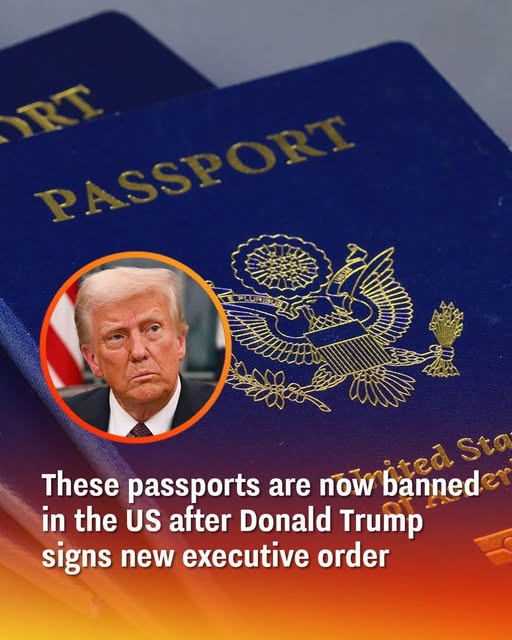Following The Signing Of A New Gender Executive Order By Donald Trump, These Passports Are Now Prohibited In The United States
In a recent move that has drawn both support and criticism, former President Donald Trump signed an executive order after his return to the White House that significantly affects non-binary individuals and their ability to obtain passports. The directive reinforces the classification of only two genders, male and female, and introduces several restrictions that impact the transgender community.
One of the most controversial aspects of the executive order is its suspension of the “X” gender marker for passports. Under the Biden administration, non-binary individuals—those who do not identify strictly as male or female—were allowed to request a passport with an “X” gender marker as an option on their official documents. This option was viewed as a step toward more inclusive recognition of gender diversity. However, Trump’s executive order has effectively reversed this progress, directing the U.S. State Department to halt applications for passports that include the “X” gender marker.
Under the new policy, applications for passports with a non-binary marker will not be processed, and any attempts to change gender markers on official documents, such as passports, are also put on hold. While passports that have already been issued with an “X” remain valid, future applications from non-binary individuals may face significant challenges and delays as they navigate the new restrictions.
The move is part of a broader agenda that continues to draw stark lines between transgender and non-binary rights and more traditional views of gender classification. Trump’s order also specifically mandates that transgender women, or those assigned male at birth but who identify as female, should not be housed in women’s correctional facilities. This provision has raised concerns about the safety and well-being of transgender individuals who may now face additional challenges in securing appropriate housing in prisons.
Advocates for transgender rights and non-binary individuals have expressed strong opposition to the executive order, arguing that it undermines the rights of people who do not fit into the traditional binary gender system. “This policy is a step backward,” said Sarah Roberts, a spokesperson for the National LGBTQ+ Rights Coalition. “It not only erases the existence of non-binary people but also increases the potential for harm and discrimination against transgender individuals in the correctional system.”
Supporters of the order, on the other hand, argue that the changes are in line with more traditional views of gender and the importance of maintaining clear and consistent classifications in official documents. Some conservative groups contend that the flexibility of gender markers undermines the clarity and simplicity needed in governmental systems, particularly in security and identification procedures.
The issue of gender markers on passports has become a flashpoint in the ongoing debate over transgender rights and recognition in the United States. The Obama administration first made significant strides in recognizing gender identity by allowing transgender individuals to change the gender marker on their passports to match their gender identity. The Trump administration’s rollback of this policy, however, has left many feeling uncertain about the future of gender recognition in federal documents.
In addition to the passport restrictions, Trump’s executive order also directs federal agencies to review existing policies related to gender identity in various areas, including healthcare, education, and employment. The review is expected to lead to further changes that could limit the rights and protections of transgender and non-binary individuals in these sectors.
While the Trump administration’s stance on transgender rights is seen as a step backward by advocates, it is also important to note that the situation is dynamic and may evolve depending on future political leadership. Legal challenges to the executive order are expected, and it is possible that future administrations could reverse or amend the policies put in place by the Trump administration.
As for the immediate impact on non-binary individuals, many are now left uncertain about their ability to navigate the bureaucratic hurdles posed by the executive order. Some have already begun expressing concerns about how they will be able to travel or prove their gender identity in situations that require official documentation, such as applying for jobs or housing.
For now, the transgender and non-binary communities are bracing for the long-term implications of this new directive. In the meantime, the Biden administration has expressed its intention to continue supporting the rights of transgender and non-binary people, although it remains to be seen whether any immediate action will be taken to reverse the recent executive order.






